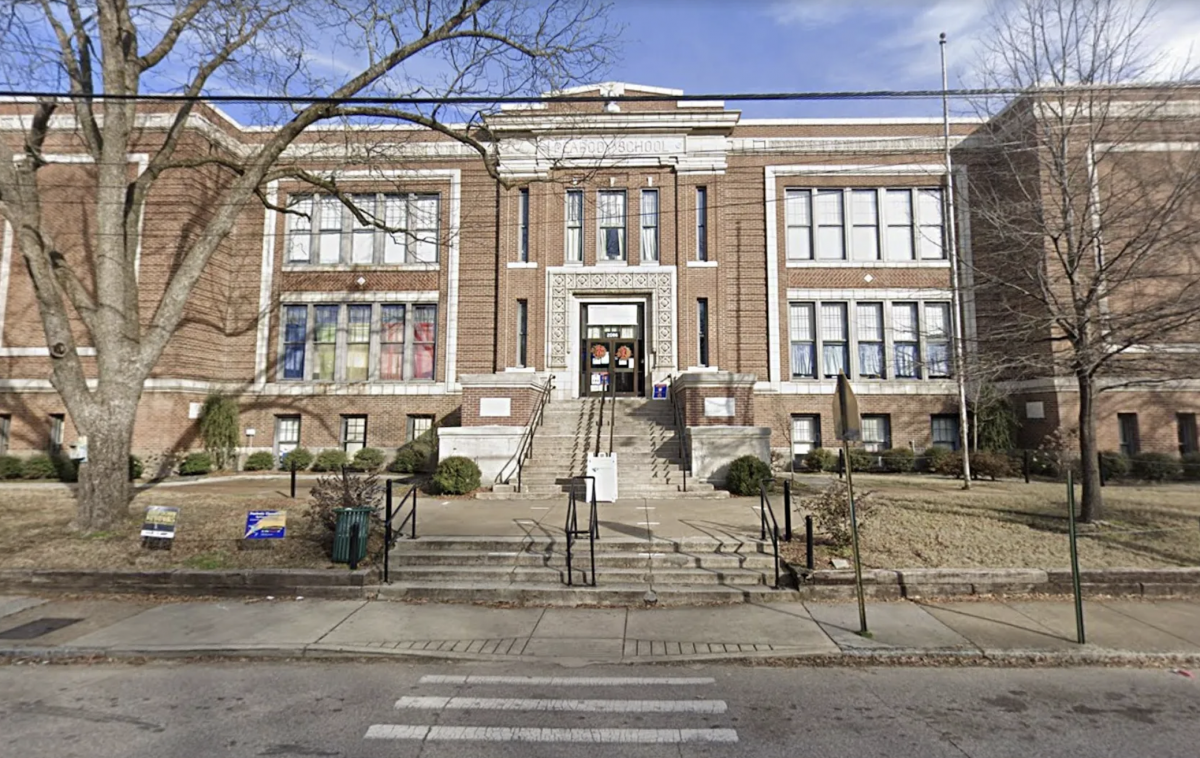It was supposed to make things simpler.
A 2016 Tennessee law required the state to assign each public school a letter grade, A to F, based mostly on student test results. The intent was to give parents and communities an easy way to assess the quality of education at each school.
Nothing about it has been simple, though. Since the law took effect, the state hasn’t issued any grades, mostly because of testing glitches and the pandemic.
And now there’s a new complication: As the state prepares to finally issue its first grades in November, the education department and its new leader are revamping the grading formula. The changes likely will mean fewer A’s and generally worse grades than expected for many schools, especially those serving students from lower-income families in rural and urban communities.
The rollout will be a jolt to many Tennessee public school leaders, who have been waiting and planning for these grades for five years, thinking they understood what the criteria would be. And beyond the stigma, the grades could have real consequences: Officials representing schools that get D’s or F’s eventually may face hearings or audits of their spending and academic programming.
“It almost seems like we’re trying to change rules after the game’s already been played,” said Brian Curry, a school board member in Germantown, during an August town hall in Memphis to discuss potential changes with state officials.
At the crux of the state’s late change is a long-running debate over proficiency vs. growth — whether students should be judged based more on whether they meet certain academic standards, or on how much progress they make toward those standards. Where the state lands in that debate is especially important for schools where students face extra challenges even before they walk into a classroom.
But many public school leaders believe there’s a larger political motive behind the sudden drive by Gov. Bill Lee’s administration to change the rules: advancing his school choice agenda.
Under a 2019 voucher law pushed by Lee, Tennessee now provides taxpayer money to help some families send their children to private schools. But the program has fewer than 2,000 students enrolled in the three counties where it operates, significantly below this year’s 5,000-seat cap. Lee wants to expand enrollment and eventually take the option statewide.
“School choice has got to be part of what’s driving all this,” said Mike Winstead, director of Maryville City Schools and a former Tennessee Superintendent of the Year.
“Think about it,” he continued. “If you have an A or B school in your community, that may not motivate parents to want to pull their kids out of public schools to use a voucher.”
Several other district leaders brought up the same concern to state officials at town halls hosted by the department in August and September to get public feedback about revising the grading formula. But state officials flatly deny there’s a connection between the voucher law and changes to the grading formula.
The grading law “was passed to promote transparency, and families should be able to know and to understand how their students’ schools are performing,” a department spokesman said in a statement to Chalkbeat.
Education Commissioner Lizzette Reynolds said the goal of the new formula is to generate grades that signify meaningful differences in school performance in a way that make sense to Tennesseans, whether they reflect proficiency, growth, or other criteria that are ultimately chosen.
“Whether you are a student, parent, teacher, policymaker, or an interested community member, school letter grades will empower all Tennesseans with the information they need to support K-12 public education and our local schools,” she said.
State law requires that Tennessee’s model for grading schools take into account student performance and improvement, as demonstrated on annual state tests, and it allows inclusion of other reliable indicators of student achievement. The statute directed the education department to come up with a formula to turn those results into a single letter grade for each school, to be published online on the State Report Card.
When developing the calculation under former Republican Gov. Bill Haslam’s administration, the department stressed achievement and growth in math and English language arts. And it created two pathways for schools to demonstrate achievement.
One way was based on what the state calls “pure achievement,” meaning that a certain percentage of a school’s students demonstrated a required level of proficiency, skill, or knowledge. By this metric, a school that started the school year with a high proficiency rate was likely to receive an A even if it had not improved student learning during the school year.
The other way rewarded schools that met certain goals to move their students toward proficiency from one year to the next. The idea was that all schools, especially those serving low-income students or that have historically performed poorly, should have an opportunity to get an A as long as they make strong progress toward the state’s achievement goals.
So even the achievement part of the grading formula could be fulfilled with strong growth. In this way, Tennessee was an early adopter of a growth-heavy model when developing its accountability system.
“All means all!” became the mantra of then-Education Commissioner Candice McQueen as she worked with education stakeholders for nearly a year to design a system to incentivize improvement for allstudents — whether they are considered low, average, or high achievers — as well as for all schools, regardless of their demographic makeup.
Tennessee had modest success with that approach, even though the actual letter grades were never issued. Before the pandemic hit in 2020, students were showing incremental growth in math and reading based on some of the nation’s highest proficiency standards.
But state lawmakers have become increasingly impatient with the pace of improvement, especially in reading. About a third of the state’s students meet grade-level standards on the English language arts test, which requires students to demonstrate the ability to read closely.
“At the end of the day, I want to know: Can you add, subtract, multiply, and divide, and can you read, regardless of how much you have grown from one year to the other?” said Rep. Mark Cochran, an Englewood Republican, during one legislative hearing about the state’s emphasis on growth.
Meanwhile, the legislature has sought to provide more options for families dissatisfied with the performance of traditional public schools by introducing private school vouchers and allowing charter schools to open statewide.
Now as Tennessee revamps its school grading system, Lee’s administration is poised to shift weight in the equation from growth to pure achievement. Reynolds wants the state to do that by eliminating the growth pathway for demonstrating achievement. Growth would still be a component of the overall grade, as dictated by state law, but a much smaller part.
“I want to be very clear that when we’re talking about academic achievement, we’re talking about academic achievement,” Reynolds, the new education commissioner, said at an Oct. 12 meeting of education stakeholders.
Reynolds, who was sworn in to her post in July, launched the reevaluation of the grading system about a month later as her first major initiative. She invited Tennesseans to weigh in on how the state should measure a school’s academic success. At the time, state officials said all options were on the table.
At town halls, meetings with stakeholders, and in nearly 300 public comments from Tennesseans, state officials heard a common theme: Keep some kind of growth option as part of the achievement calculation. Measuring student performance with a single letter grade requires nuance, many educators said, and the growth-based model allows that.
A formula that’s weighted too heavily toward pure achievement, they warned, would produce grades that essentially mirror the economic profiles of the schools — with high-income communities getting the A’s and B’s — and families wouldn’t be able to use the grades to differentiate the performance of one high-poverty school from another.
“Given the strong correlation between achievement and poverty, I think it’s really difficult to talk about just achievement in isolation. We really need to balance this with growth,” said Madeline Price, policy director for the State Collaborative on Reforming Education, at an Oct. 5 meeting of the stakeholders group.
“All schools, especially low-income and traditionally low performing schools, should have a very real opportunity to receive an A” if they significantly improve student performance, the leaders of Tennessee’s school superintendent organization wrote in a letter to Reynolds.
Meaghan Turnbow, who coordinates programs for English language learners in fast-growing Rutherford County Schools, south of Nashville, noted pitfalls in a model that emphasizes proficiency over growth.
“We have students come to our district from all over the world with various education levels and English levels,” she wrote in a public comment. “Year to year they grow, but it may be several years before they are considered meeting or exceeding expectations.”
But soon after asking for public feedback, Tennessee’s new education chief signaled that she wanted to narrow the way the state judges student performance.
During an Aug. 29 town hall in Chattanooga, Reynolds acknowledged that the education department, before scuttling plans to issue grades in the fall of 2022 under former Education Commissioner Penny Schwinn, had run the numbers but didn’t like what it saw. For instance, she said, a school with 80 percent of its students reading on grade level might have received a B, but so might a school that had only 15 percent of students reading on grade level, while also demonstrating high growth.
“Is having a campus that has only 15 percent reading proficiency really a B school, if those kids cannot read?” Reynolds asked.
“We should celebrate growth,” she continued. “We should also celebrate achievement, because at the end of the day, kids can grow. But if they never get on grade level, they don’t have much of a future, particularly when it comes to reading and math.”
The A-F grading system, as required by the state, was billed as a simple, common-sense tool to help parents understand how their child’s school is doing and compare schools.
But changes the department is making could add a new layer of complexity for school communities.
When Tennessee developed its accountability plan in 2017, it opted for a single system to satisfy both the state law and a 2015 federal accountability law called the Every Student Succeeds Act, or ESSA. That way, “we’re not sending different messages to parents and the general public,” said Winstead, the Maryville schools director who served on the state task force that developed the plan.
ESSA doesn’t require A-F grades, but it directs the state to use its own criteria to identify schools that are academically in the bottom 5 percent, plus other schools showing low performance or significant disparities across groups of students who are Black, Hispanic, economically disadvantaged, or English learners, or have learning disabilities. Such schools become eligible for additional federal funding.
Because of the link between the two laws, the schools that would earn the lowest grades under Tennessee’s current formula are the same ones that would get federal support to help them improve. And educators would work with a common set of goals, priorities, and incentives.
Under Reynolds, the Tennessee education department appears ready to decouple the state’s A-F system from its federal compliance plan. The change would result in Tennessee having two accountability systems, potentially producing conflicting assessments of how a school is doing.
For example, if the new state formula places less emphasis on certain student groups than the federal system does, a school that has big racial or economic disparities in student performance could still earn high grades from Tennessee based on overall proficiency rates. Meanwhile, a school with low proficiency rates would get a D or an F, even though it may serve certain groups of students better than an A or B school.
Mary Batiwalla, former assistant commissioner of assessment and accountability in Tennessee, says what’s going on here has parallels in Texas, where Reynolds used to be chief deputy commissioner. Officials there changed their grading criteria this year to apply to schools retroactively. However, after some school districts sued that state over the changes, Texas delayed the release of its grades.
Texas lawmakers are also in the midst of a special session on vouchers to debate whether students should be able to use public dollars to attend private schools. Batiwalla worries that officials in both states are hijacking the grading systems for political aims, not to incentivize school communities to improve.
“If you want to do vouchers, do vouchers,” said Batiwalla, an outspoken critic of Reynolds’ efforts. “Don’t take away this policy tool that has the potential to drive improvement from the rest of the public schools.”
Other tweaks are likely when Tennessee releases its new equation in the days or weeks ahead, just before giving schools their first set of grades.
The department has heard calls to include social studies and science scores in the calculation, as well as data related to third-grade reading, participation in tutoring programs, and postsecondary indicators like dual enrollment and career and technical education offerings, just to name a few. There’s also a growing consensus around ditching student absenteeism data, which is a factor in the current equation.
But most educators have their eye on the growth vs. proficiency debate. They worry that greater emphasis on proficiency will motivate schools to focus on improving “bubble kids” — those scoring just under proficiency — instead of working to improve students at all levels of achievement.
“You’re incentivizing bad choices that serve just a few kids instead of all kids,” Winstead said.
Winstead’s suburban school system should be fine. Maryville City Schools, near Knoxville, is one of the state’s highest-achieving districts and stands to benefit if Tennessee’s revamped grading formula puts more weight on proficiency. But Winstead philosophically disagrees with the approach that the state appears to be taking.
“This is going to demoralize a lot of school communities,” he said, “teachers, kids, and parents — folks who have done incredible things to move kids forward.”
Marta Aldrich is a senior correspondent and covers the statehouse for Chalkbeat Tennessee. Contact her at maldrich@chalkbeat.org. Laura Testino covers Memphis-Shelby County Schools. Reach Laura at LTestino@chalkbeat.org.
Chalkbeat is a nonprofit news site covering educational change in public schools.









